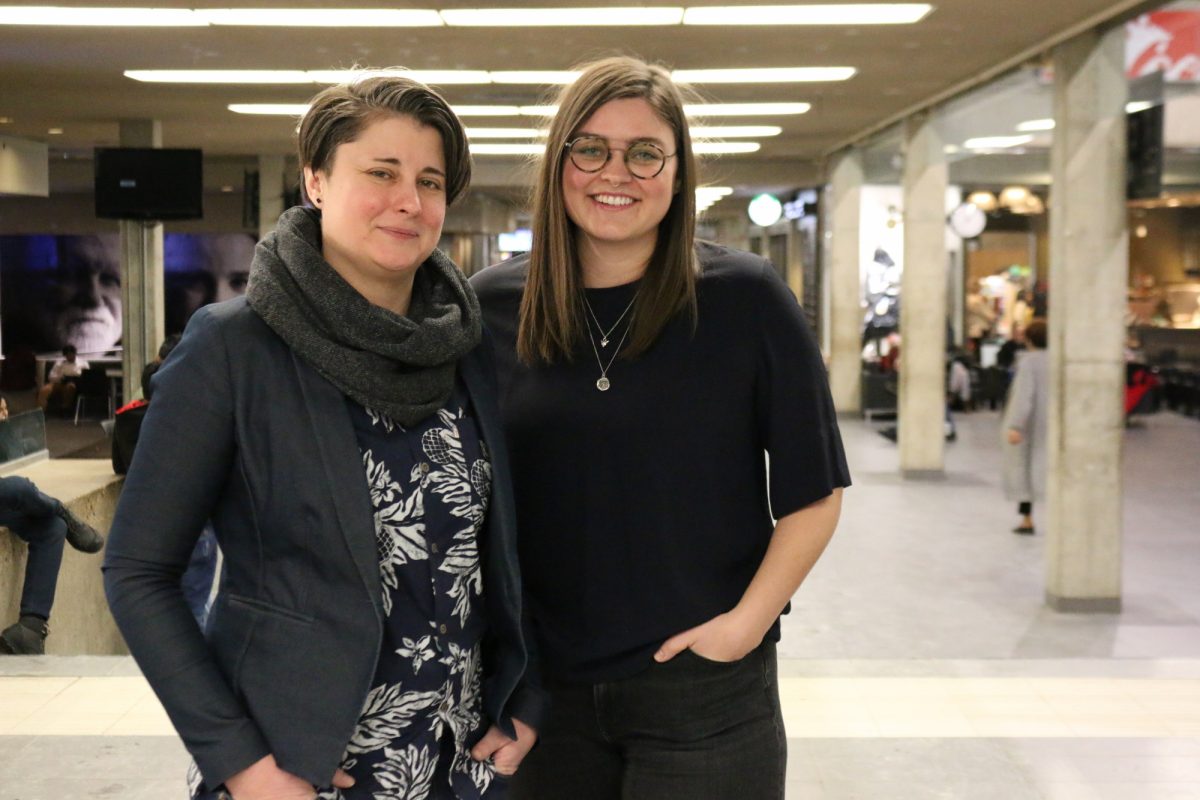
File Photo: January 2020. Bre Woligroski & Courtney Klassen from the Sexual Violence Resource Centre.
A safe space for everyone in our community
Sexual Violence Resource Centre welcomes faculty, staff and students
Everyone deserves our support. That’s the mission behind UM’s Sexual Violence Resource Centre, the university’s central hub for support and education for anyone affected by sexual violence.
Launched in January 2020, the SVRC has been operating throughout the COVID-19 pandemic with full services available to all members of the UM community. While in-person visits are currently suspended in compliance with public health directives, anyone can receive confidential support by phone or video chat.
“There’s no concern that’s too small, because this is about our community,” says Bre Woligroski, the SVRC’s coordinator. “Sexual violence is really complicated. Because it encompasses so many things, sometimes people are not even sure if it’s a problem or they think that maybe they’re overreacting. We hear a lot of that. People often feel like their feelings don’t matter. And they do.”
The SVRC is staffed by professionals trained in supporting survivors of sexual violence. Their intake & triage specialist assesses needs, clarifies options and coordinates a plan to support those directly affected by sexual violence or who are supporting someone they are concerned for. Through an arrangement with Klinic, the SVRC also offers counselling on both the Bannatyne and Fort Garry campuses to help people work through their emotions and provide strategies for coping and thriving.
Open to all
The SVRC is available for everyone in the UM community, including faculty, staff and students – whether they have experienced sexual violence or are looking to support someone who has. The incident does not need to be UM related, or have happened on campus.
Staff also provide resources and support specific to members of the 2SLGBTQ+, Indigenous and International communities.
Confidential, survivor-centred support
Accessing the SVRC is always confidential. No information is shared with other parties, including university departments, and people can use a pseudonym if they are more comfortable with not using their real name.
“We work very strongly from a survivor-centred model so the needs of the person accessing our services are central to every encounter,” explains Woligroski. “We let them know that nothing’s in a file that others can see. Your professor won’t see this, your boss won’t see this, other universities won’t see this. All we care about is supporting what the survivor wants for their life. If someone calls to say they need safe housing, they don’t have to tell us a story about it. They can tell us as much or as little as they want to.”
At the first meeting, staff will clarify with the person they are helping that there is no pressure to share anything they don’t want to, or take any action they aren’t comfortable with. Those who access SVRC are in control of the process, with limited exceptions such as mandated reporting of child abuse.
Comprehensive resources for any situation
The complex nature of sexual violence means that it often impacts many aspects of people’s lives, which the SVRC can also assist with. From helping to find a safe place to live, to addressing concerns with food security, health and wellness, or accommodations in courses or the work setting, the SVRC is a comprehensive resource.
Students, faculty and staff who need support can reach the Sexual Violence Resource Centre by emailing svrc [at] umanitoba [dot] ca, or by calling 204-474-6562. Emails and phone calls are received Monday to Friday, 8:30 am to 4:30 pm. For immediate 24/7 sexual violence support, call the Klinic Sexual Assault Crisis Line anytime at 1‑888‑292‑7565.
Online modules are also available through UM Learn. They explain policies and procedures, define consent and power differentials in relationships, and debunk common myths around sexual violence.






